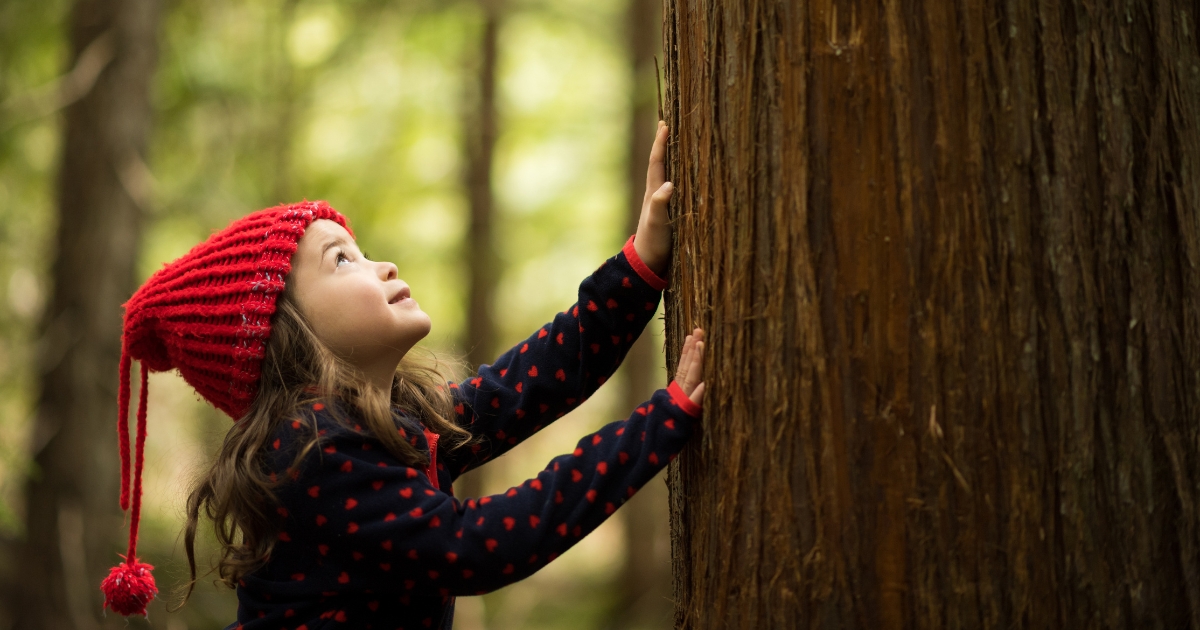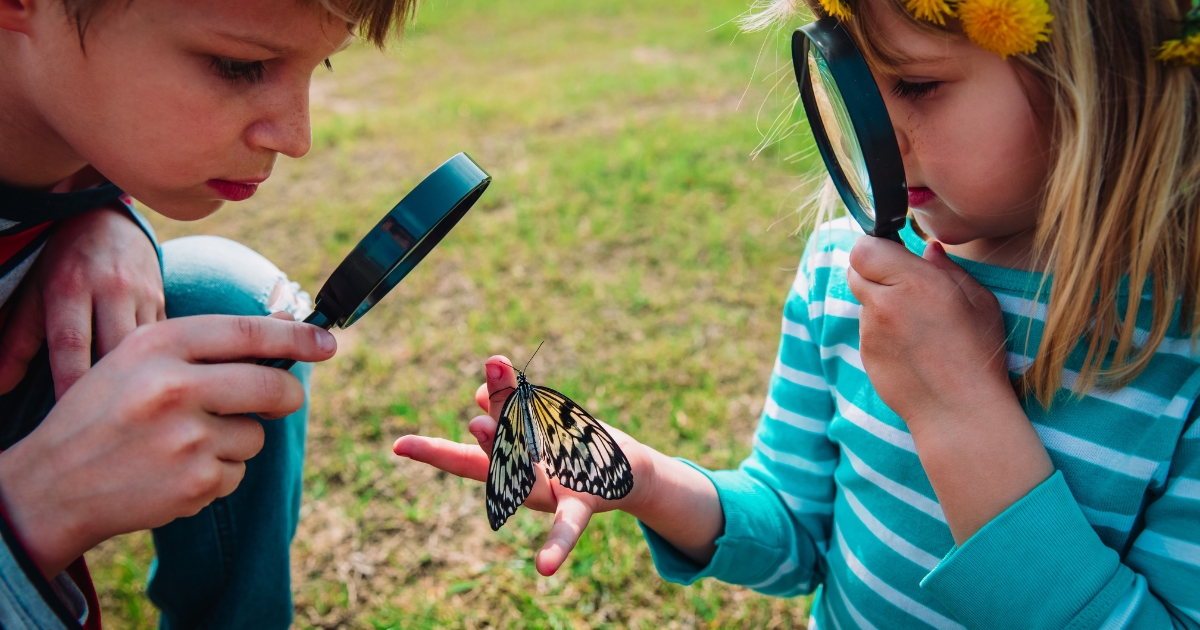Imagine a classroom where the walls stretch endlessly into the horizon, the ceiling is the vibrant blue sky, and the lessons come directly from the world around us. This isn’t a far-off dream; it’s the essence of nature study within the Charlotte Mason method. For homeschooling parents, integrating nature study into your family school can be a game-changer, cultivating a love for the outdoors in your children while providing a rich, holistic education.
The Charlotte Mason Philosophy & The Benefits Of Nature Study
Charlotte Mason, a pioneering educator in the 19th century, believed that education is an atmosphere, a discipline, and a life. Her approach emphasizes the importance of exposing children to a broad and varied curriculum, including a deep connection with nature. This method isn’t about memorizing facts but about developing a sense of curiosity and wonder in children. In the Charlotte Mason philosophy, nature study holds a significant place. It’s not merely an extracurricular activity but a core component of the learning process. Children are encouraged to observe, explore, and document their findings, fostering a sense of responsibility and stewardship for the natural world.
This hands-on approach helps children develop critical thinking skills and a deeper appreciation for the beauty and complexity of their surroundings. For homeschooling parents, adopting the Charlotte Mason method can transform your family school into a dynamic and engaging learning environment. By prioritizing nature study, you provide your children with opportunities to connect with the world in meaningful ways, igniting their passion for learning and discovery.
Nature study offers numerous benefits for homeschooling families. First and foremost, it encourages children to spend more time outdoors, which has been shown to improve physical health, mental well-being, and cognitive development. Time spent in nature can reduce stress, boost creativity, and enhance problem-solving skills, making it an invaluable component of a well-rounded education. Incorporating nature study into your family school also provides opportunities for interdisciplinary learning. Children can explore topics such as biology, ecology, geography, and even art and literature through their observations and experiences in nature.
This integrated approach helps children make connections between different subjects, deepening their understanding and appreciation of the world around them. Furthermore, nature study fosters a sense of wonder and curiosity in children. By encouraging them to ask questions, make observations, and seek answers, you help them develop a lifelong love of learning. This intrinsic motivation is essential for academic success and personal growth, setting the stage for a fulfilling and enriching educational experience.
Getting Started & Overcoming Challenges In Nature Study
If you’re new to the Charlotte Mason method and nature study, don’t worry—getting started is easier than you might think. Begin by setting aside regular time for outdoor exploration, whether it’s a daily walk in the park, a weekly hike, or a monthly visit to a nature reserve. The key is consistency and making nature study a priority in your homeschooling routine. Encourage your children to keep nature journals, where they can document their observations, sketch plants and animals, and record their thoughts and reflections. This practice not only helps children develop their writing and drawing skills but also encourages mindfulness and attention to detail. Over time, these journals will become cherished keepsakes, reflecting your children’s growth and discoveries.
In addition to nature journaling, consider incorporating field guides, nature books, and other resources into your family school. These materials can help children identify plants, animals, and other natural phenomena, providing valuable context and background information for their observations. By combining hands-on exploration with structured learning, you create a rich and engaging educational experience for your children.
While nature study offers numerous benefits, it can also present challenges, especially for homeschooling families in urban or suburban areas. Limited access to natural spaces, inclement weather, and busy schedules can make it difficult to prioritize outdoor time. However, with a little creativity and flexibility, you can overcome these obstacles and make nature study an integral part of your family school.
One way to address limited access to natural spaces is to explore local parks, gardens, and nature reserves. Even small green spaces can offer valuable opportunities for observation and exploration. Additionally, consider bringing nature indoors by creating a nature table where children can display and study natural objects such as rocks, leaves, and shells. When weather conditions are less than ideal, use indoor activities to supplement your nature study.
For example, you can watch nature documentaries, read books about wildlife and ecosystems, or conduct simple science experiments related to the natural world. These activities can help maintain your children’s interest and enthusiasm for nature study, even when outdoor time is limited. Finally, nature study should be made a family affair by involving everyone in the process. Plan outings, participate in community events, and share your own observations and discoveries with your children. By modeling a love for learning and exploration, you inspire your children to develop their own passion for the natural world.

Building A Community Of Nature Enthusiasts & Encouraging Lifelong Learning
One of the most rewarding aspects of incorporating nature study into your family school is the opportunity to connect with other homeschooling families who share your interests. Building a community of nature enthusiasts can provide valuable support, encouragement, and inspiration for both you and your children. Join local homeschooling groups, attend nature-themed workshops and events, and participate in online forums and social media groups dedicated to nature study and the Charlotte Mason method. These connections can help you discover new resources, share ideas and experiences, and foster a sense of camaraderie and belonging. Consider organizing group outings, nature walks, and field trips with other homeschooling families. These activities can provide additional opportunities for socialization, collaborative learning, and shared experiences, enriching your children’s educational journey and strengthening your homeschooling community.
One of the most powerful aspects of nature study is its ability to inspire lifelong learning. By fostering a sense of curiosity and wonder in your children, you help them develop the skills and mindset needed to pursue knowledge and growth throughout their lives. Encourage your children to continue exploring and learning about the natural world, even beyond the confines of your family school. Support their interests by providing access to books, documentaries, and other resources, and encourage them to participate in extracurricular activities such as nature clubs, scouting programs, and citizen science projects. By nurturing a love for the outdoors and a passion for discovery, you equip your children with the tools they need to become lifelong learners, critical thinkers, and responsible stewards of the environment.
The Role Of Parents & The Importance Of Stewardship In Nature Study
As a homeschooling parent, your role in nature study is crucial. You are not only a teacher but also a guide, mentor, and role model for your children. By demonstrating your own enthusiasm for the natural world, you inspire your children to follow your lead and develop their own connection with nature. Take the time to learn alongside your children, exploring new topics, asking questions, and seeking answers together. This collaborative approach not only strengthens your bond with your children but also reinforces the idea that learning is a shared and ongoing process. Additionally, be patient and flexible in your approach to nature study. Each child is unique, and their interests and abilities may vary. Allow your children to explore at their own pace, and be open to adjusting your plans and expectations based on their needs and preferences.
Nature study also plays a vital role in teaching children about stewardship and responsibility. By fostering a deep connection with the natural world, children develop a sense of accountability for the environment and a commitment to protecting and preserving it for future generations. Incorporate discussions about environmental issues, conservation efforts, and sustainable practices into your family school. Encourage your children to participate in community projects, such as tree planting, clean-up events, and wildlife conservation initiatives. By instilling a sense of stewardship and responsibility in your children, you empower them to become proactive and informed citizens who are committed to making a positive impact on the world around them.
The Impact Of Nature Study On Personal Growth & Creativity
Nature study can have a profound impact on your children’s personal growth and development. By engaging with the natural world, children develop a sense of wonder, curiosity, and appreciation for the environment, which can foster a lifelong commitment to conservation and sustainability. Furthermore, nature study encourages children to develop important life skills such as observation, critical thinking, and problem-solving. These skills are not only essential for academic success but also for navigating the challenges and opportunities of everyday life. By incorporating nature study into your family school, you provide your children with a rich and holistic education that nurtures their intellectual, emotional, and physical well-being.
One of the most exciting benefits of nature study is its ability to inspire creativity in children. The natural world is a rich source of inspiration, offering endless opportunities for artistic expression, storytelling, and imaginative play. Encourage your children to use their nature journals as a creative outlet, incorporating drawings, paintings, poems, and stories inspired by their observations and experiences. This artistic expression can help deepen their connection with nature and enhance their learning experience. Additionally, consider incorporating nature-inspired activities into your family school, such as nature-themed crafts, music, and drama. These activities can provide a fun and engaging way for children to explore their creativity while reinforcing the concepts and themes they encounter in their nature study.
Nature study within the Charlotte Mason method offers a unique and enriching approach to homeschooling, providing numerous benefits for both children and parents. By integrating nature study into your family school, you create a dynamic and engaging learning environment that fosters curiosity, creativity, and a lifelong love of learning. Remember to be patient, flexible, and open to new experiences as you embark on this educational journey with your children. By prioritizing nature study and building a supportive community of like-minded families, you can transform your homeschooling experience and cultivate a deep and lasting connection with the natural world. For those looking to explore further, consider connecting with local nature groups, attending workshops, or seeking guidance from experienced Charlotte Mason educators. The possibilities are endless, and the rewards are immeasurable. Together, let’s inspire the next generation of nature enthusiasts and lifelong learners.





